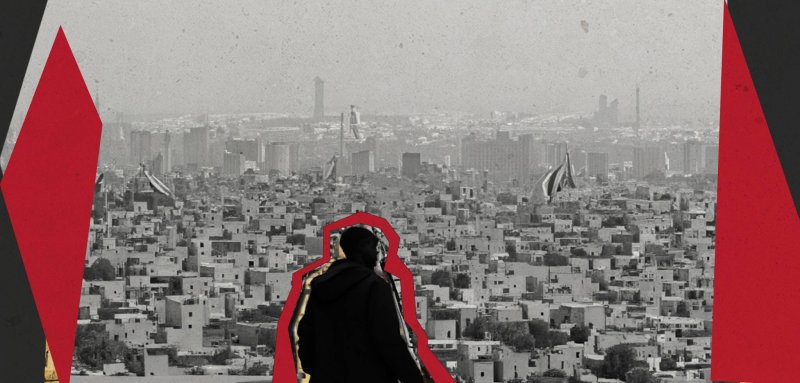I have only traveled to Sudan, my homeland, three times in my entire life. I am one of those "children of expatriates" rejected by my homeland, and with neither the right of citizenship in my country of upbringing, nor the sense of complete belonging to my homeland. We are migrants, holding residence permits with expiry dates. We have a hybrid identity that is clearly evident in our speech and musical taste, a distinction that is often subject to criticism or mockery in both the worlds we inhabit.
My first conscious visit to my homeland was last year. I traveled alone with the purpose of authenticating my university diplomas. I hid my apprehension of my first encounter with this land that I had only dealt with through its consulates and embassies, preoccupying myself with my pre-travel to-do lists, until a few hours before my flight when my brother asked me how I was feeling. My silence was betrayed by unusual tears falling down my face.
I am one of those "children of expatriates" whose homeland rejected them, and now have neither the right of citizenship in my country of upbringing, nor the sense of complete belonging to my homeland. We are migrants, holding residence permits with expiry dates
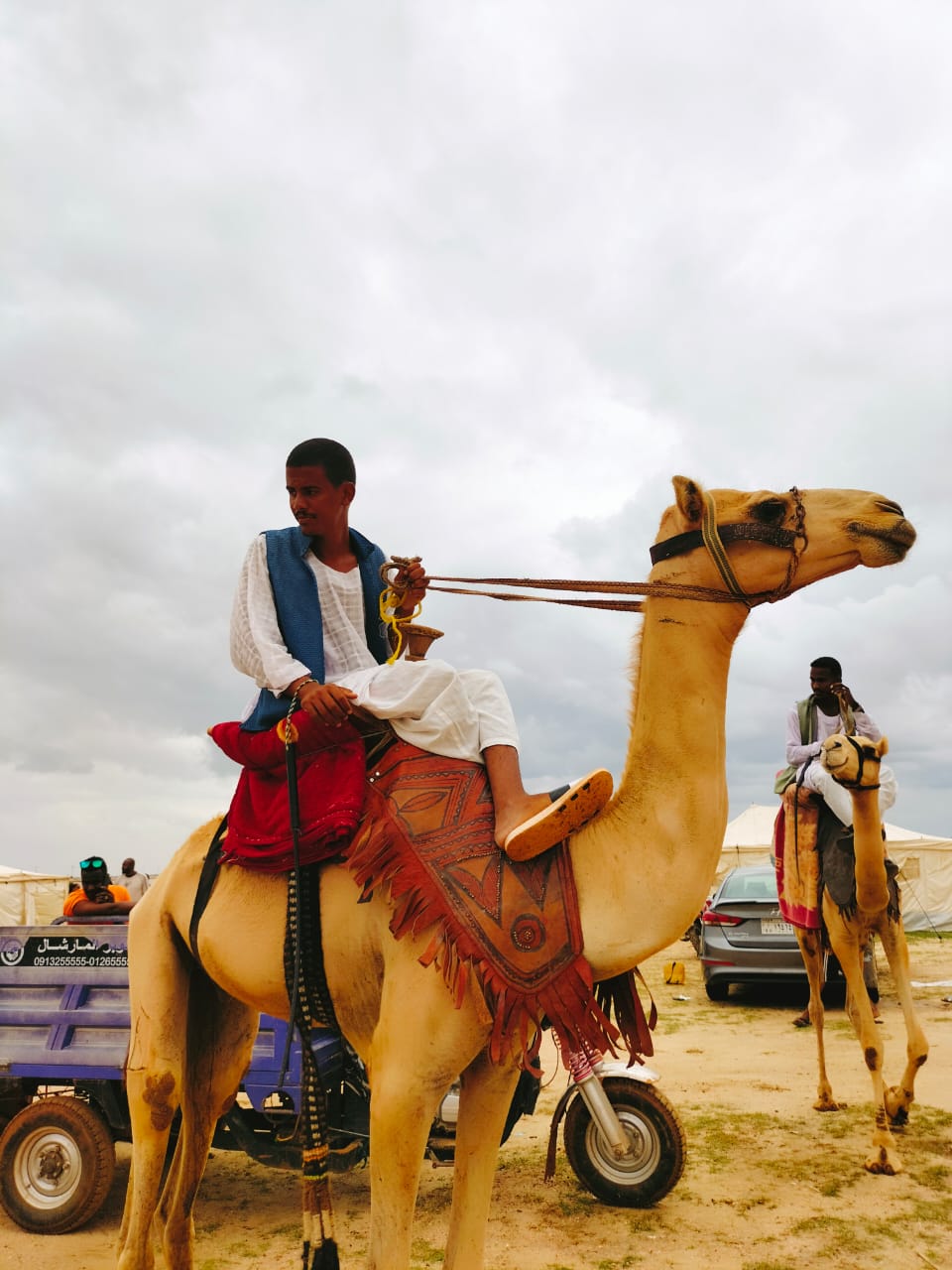 Camel rides between Sudan's villages
Camel rides between Sudan's villages
I threw myself into the experience, without preconceptions or expectations. During the months I spent in Sudan, I was overtaken by astonishment and a desire to explore, seeking to forge a firm impression of and nurture my relationship and belonging to a homeland whose heritage and legacy I carry clearly in my features and skin color, at our dinner table in Mecca, and in my passport.
My parents' roots can be traced back to Tayba AlHasanab, one of the villages in Jabal Awliya, where I spent three months of compulsory residence last year, running after various bureaucratic and government agencies to authenticate my academic credentials. It was a relentless search for acquaintances and connections to help expedite a stamp here and a signature there, retaking a medical oath for the second time. I previously swore the medical oath with the Alexandria Medical Syndicate upon graduating, but Sudanese authorities demanded I take another oath, followed by a practice license exam and a request of exemption from national service in the Sudanese Armed Forces.
While living in Sudan, I discovered the joy of electricity; The moment power returns after hours of outage to the cheers of the neighborhood kids, we rush to charge our phones, do the laundry, and perhaps seize a few hours of air-conditioned sleep
I signed a pledge to postpone my mandatory service due to my residency outside Sudan, a pledge that everyone breaks and settles with a nominal fine. The colonel sitting before me knew it, and I knew it, yet we are bound to follow a sacred bureaucratic code.
I didn't live in one of the upscale neighborhoods of Khartoum, as is customary for the "children of expatriates", which allowed me to have a unique and intimate experience. I discovered the joy of electricity; When power returns after hours of outage, accompanied by the cheers of the neighborhood kids, we rush to charge our mobile phones, do the laundry and ironing, and perhaps seize a few hours of air-conditioned sleep before the next inevitable outage.
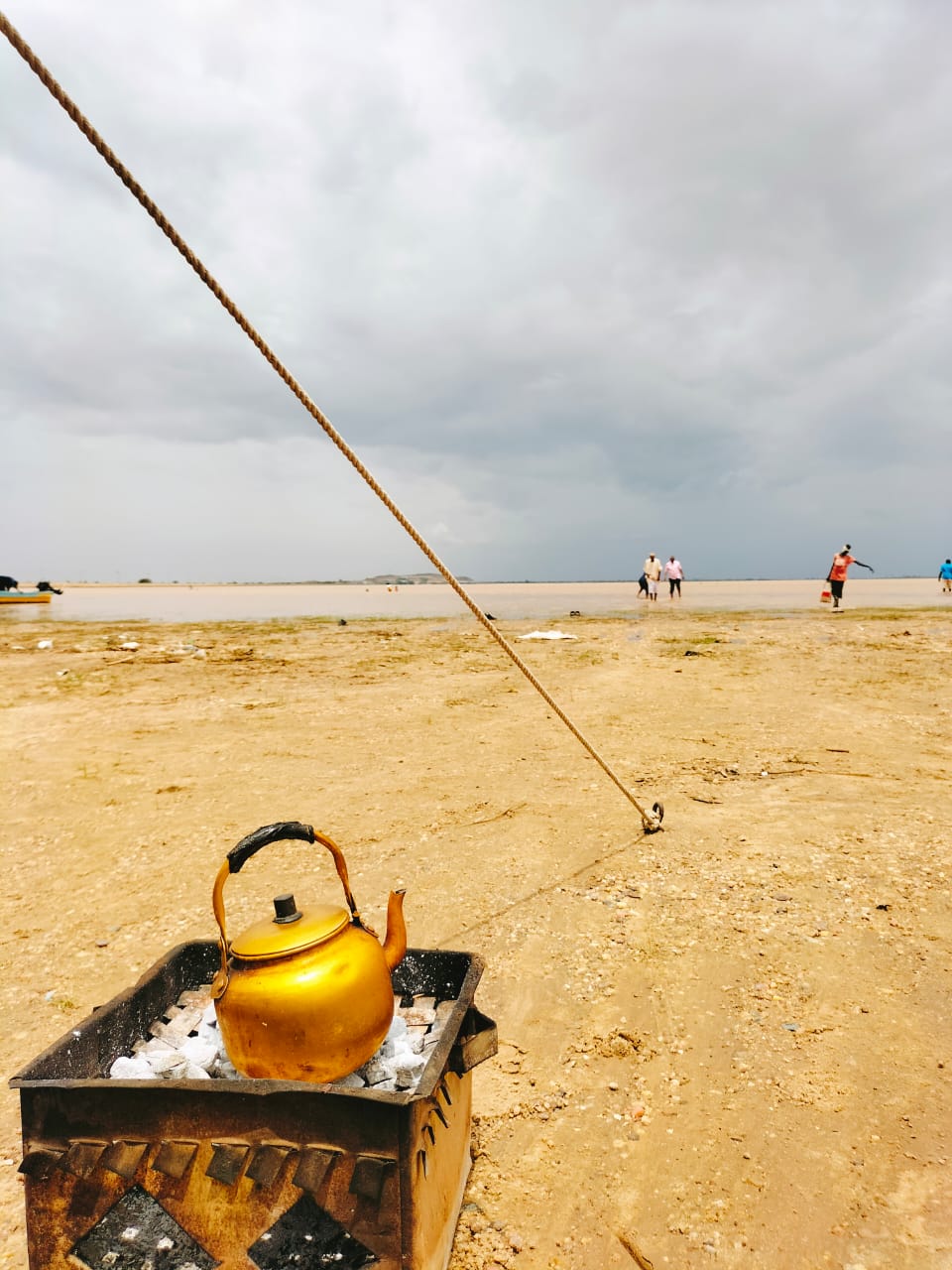 Picnics and tea by Sudan's White Nile
Picnics and tea by Sudan's White Nile
I took public transportation, and studied the expressions and body language of my fellow passengers during this hour-long journey in a twelve-passenger vehicle. There was minimal dialogue between the driver and passengers, and among the passengers themselves. In Sudan, passengers rely on non-verbal cues to alert the driver that they have reached their stops, such as finger snapping for women and a siksik siksik sound for men, resembling the chirping of birds. I get the urge to yell, "Right here, driver!" as I used to say in Alexandria, but I yield and observe with amusement.
Sudan is a country plagued by misfortune. It barely emerges from one ordeal before it is struck by an even worse one. Independence, followed by unjust rule, then secession and economic collapse, before the civil war came and wiped out what little had survived
Passengers pay the fare upon disembarking. Many times, the passenger pays before raising his hands and declaring, "This is all I have, I swear!” The driver continues with his journey in silence. The silence, often occupied by the calm and quiet recitation of the Quran by Sheikh Noreen Muhammad Siddiq, became the background sound for most of my observations and transportation.
I am amazed by how the people of Sudan enjoy their time, with everything going on around them seemingly forgotten. Daily conversations include news of which streets are closed by protesters, the shortage of medication, the exorbitant prices, deteriorating security situation, and almost daily stories of armed robberies in broad daylight, in full view of –and perhaps with the blessing of– the security apparatus. They go on to talk about how the rainy season is approaching, and the grassroots efforts to dig channels for the floodwater by the neighborhood youth.
Despite all of this and more, they sing to the expatriate, urging him to return: Distant one, how could you leave us... to our longing and the memories of our past? How will we be after your departure? And what will our nights become?
They remind him of the necessity to return after a phone call in which he informs them that he completed the money transfer, along with details of how it is to be distributed among several households whose only subsistence is that transfer. They thank him and implore him to return and end his exile.
During my time in Sudan, I was overwhelmed by a desire to explore, seeking to forge a firm impression and nurture my relationship and belonging to a homeland whose heritage and legacy I carry clearly in my features and skin color and in my passport.
I've seen the women in our village visit each other with milk, sugar and biscuits, a token of duty as much as of hospitality. The children dance along to TikTok, the women wear brightly-colored clothes, and the men sip coffee at tea lounges, one leg crossed over the other with a sultan-like demeanor.
Sudan is a country plagued by misfortune, an unlucky country. It barely emerges from one ordeal before it is struck by another, more severe one. Independence, followed by unjust rule, then secession and economic collapse, before the current civil war came and wiped out what little had survived the previous tribulations, from infrastructure to health and educational facilities, killing the rosy dreams of the revolutionaries in their infancy.
My mother told me weeks ago that the Jebel Aulia Dam was targeted by drones belonging to rebel forces, following a bloody battle between the armed forces and the Rapid Support Forces. The result was the complete destruction of the Jebel Aulia market, a main supply line for all the villages in the Jebel Aulia area, including my village, Tayba AlHasanab, and a massacre, in which most of the victims were residents of the area and shoppers from neighboring villages. As is customary, the Sudanese civilian, whether living or dead, has no fortune. There is no accurate count of the casualties — only horrifying stories of the extent of destruction on people’s homes and properties, with conflicting reports, sometimes confirming and sometimes denying the targeting of the Jebel Aulia Dam.
I am amazed at how the people of Sudan seemingly forget what's happening around them. Daily conversations cover the shortage of medication, the deteriorating security situation, and stories of armed robberies in full view of – and perhaps in cahoots with – the security apparatus
The Jebel Aulia Dam is located on the banks of the White Nile, constructed by the English for the benefit of the Egyptian government over a century ago, before being handed over to the Sudanese government after the construction of the High Dam
Apart from its function regulating water levels and generating electricity, the mountain reservoir is an important domestic tourist destination. It is the first destination many choose to enjoy a fresh and delicious Nile fish meal in one of the restaurants located along the shore with a delightful view.
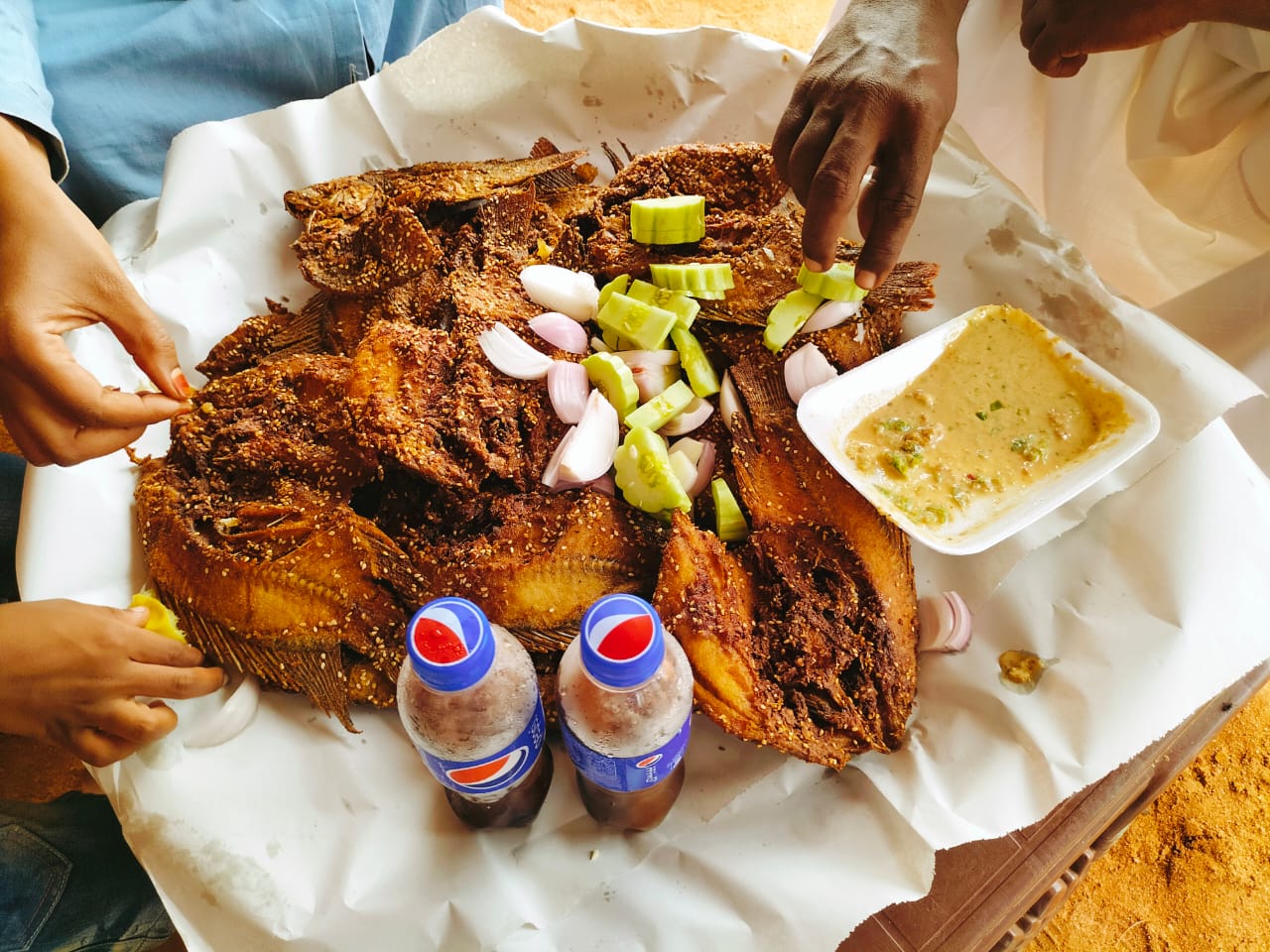 Some of the best fish dishes in Sudan
Some of the best fish dishes in Sudan
The mountain reservoir is entrenched in the collective memory of most Sudanese people as the setting of many family trips and outings for newlyweds, as well as by expatriates who visit on their short trips to the homeland.
When my mother told me about the targeting of Jebel Aulia, I envisioned the mountain with its people, the boat owners, the camels, the horses, the tea and coffee lounges. I visited the mountain reservoir three times throughout my life: once under the age of six, on a short trip I accompanied my father on; I watched the rushing current from the top of the bridge, as passers-by congratulated my father, honking their horns in cheer, wishing him a happy married life. Our car had been borrowed for my uncle's wedding procession a few days earlier, and it still bore traces of the celebration, adorned with flowers and white cotton to write the bride and groom's initials.
My last two visits took place last year. The sky colluded with us by blocking the sun, only allowing a light drizzle. This made the atmosphere pleasant and delivered cool lighting suitable for photography.
In Sudan, displacement is for those who have money, and migration is for those who have both money and a valid passport. The rest only have God. Severed limbs leave a phantom pain no painkiller can relieve, just like my crippled sense of belonging to this land
That day, I wanted to drink tea from a tea lounge for the first time. My sister's husband accompanied me and we were offered tea with too much sugar and a lot of affection. Beside the tea was a small plate with sweets and peanuts. The lady noticed that I was taking pictures, so she treated me like a VIP and allowed me to take a photo of her.
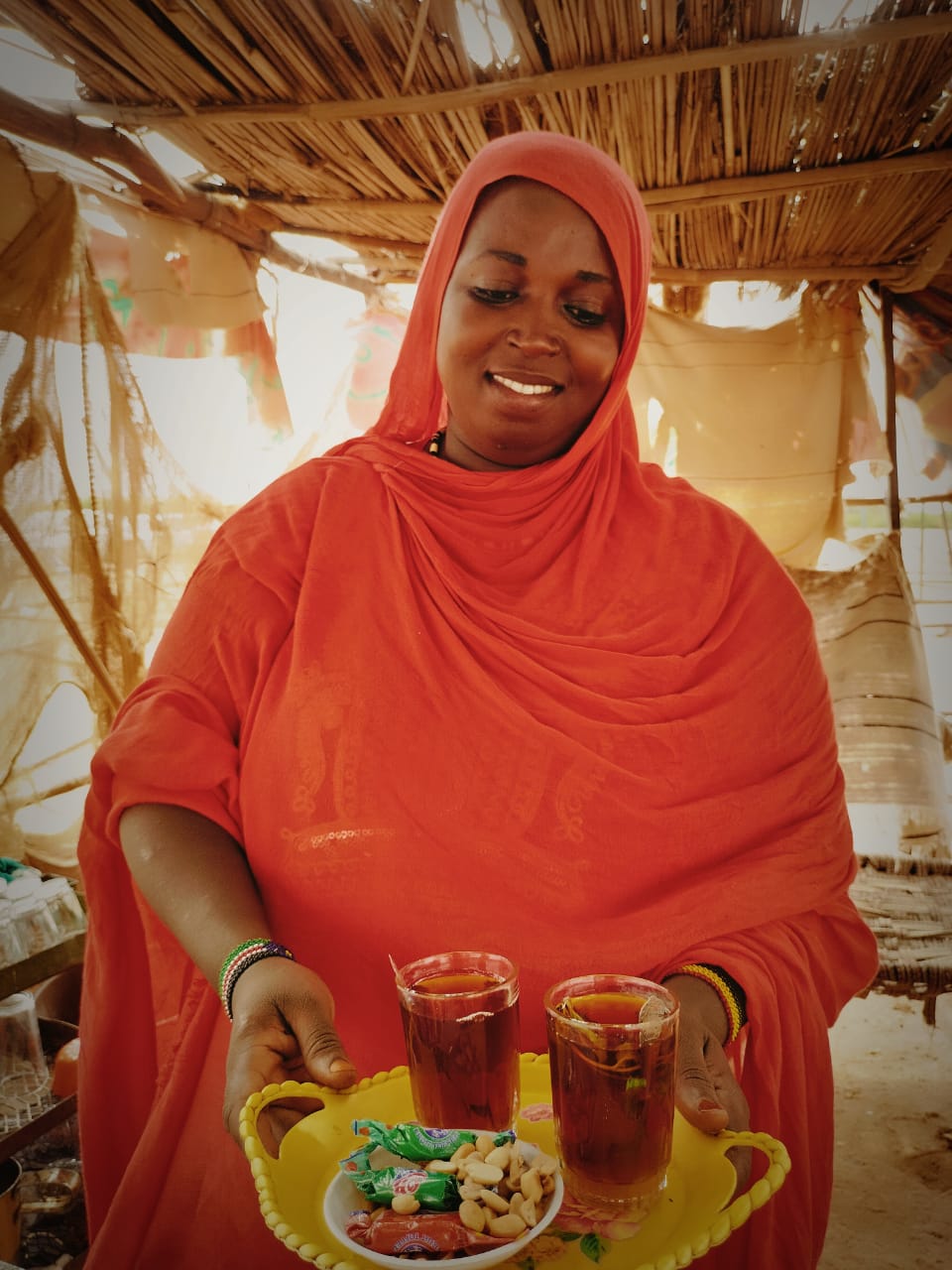 Traditional tea and peanuts served in Sudan's tea lounges
Traditional tea and peanuts served in Sudan's tea lounges
I think of her red dress, dark eyes and imposing figure, not hidden by the loose-fitting dress. She seemed preoccupied with taking orders and adding more incense to the burning red embers, similar in color to her dress.
On my last visit to the reservoir, one of us needed the restroom. Since the restaurants lacked facilities, one of my relatives suggested going to a nearby village. I joined the group for the purpose of exploration and claimed that I also needed the restroom.
We found a relatively luxurious house under construction. In its outdoor courtyard, there was a group of three women of varying ages and a small army of children gathered around a dinner table laden with what appeared to be leftover fish from one of the nearby restaurants. My aunt greeted the women warmly and asked to use the restroom. They automatically pointed her to the bathroom and water jug.
The bathroom was outside the house, in line with traditional Sudanese architecture. It featured a squat toilet and a simple water jug, with only a small door for modesty.
I think of their faces: the chef at the fish restaurant who engaged us in a playful challenge, allowing my nephew to cook a fish before gifting it to him; the charming tea lady; that family from the village of Musa and their naked toddler, and their bathroom door that revealed more than it covered. I wonder if they are okay, if the righteous guardians of the mountain spared them, and if they survived a war hidden from the eyes of the media and human rights organizations. In this war, the dead are buried without news coverage, monitoring, or forensic medical reports.
Even if the war destroys the traces of my footsteps on this land, it will not destroy my memory, nor will it understand the phantom pain that keeps me connected to the people of this land, who are divided by tribes and Sufi orders, but united by the pain
In Sudan, displacement is for those who have money, and migration is for those who have both money and a valid passport. As for the rest, they only have God. Severed limbs leave a phantom pain that cannot be relieved by painkillers, just like my crippled sense of belonging, that does not accept any alternative prosthetic limbs.
Even if the war destroys the traces of my wonky steps along the streets, alleys, and riverbanks of this land, it will not destroy my memory, nor will it understand the phantom pain that keeps me connected to the people of this land, who are divided by tribes and Sufi schools, but united by pain.
* The views and opinions expressed in this article are those of the author’s and do not necessarily reflect the official policy or position of Raseef22
Raseef22 is a not for profit entity. Our focus is on quality journalism. Every contribution to the NasRaseef membership goes directly towards journalism production. We stand independent, not accepting corporate sponsorships, sponsored content or political funding.
Support our mission to keep Raseef22 available to all readers by clicking here!
Interested in writing with us? Check our pitch process here!
